
Нови факти за живота на професор Симеон Демостенов (1886–1966)
Concise notes about life and work of professor Demostenov
More...We kindly inform you that, as long as the subject affiliation of our 300.000+ articles is in progress, you might get unsufficient or no results on your third level or second level search. In this case, please broaden your search criteria.

Concise notes about life and work of professor Demostenov
More...
This article considers the work of Thomas Piketty on inequality, with special emphasis on the reception of his ideas in the social sciences. First, a quantitative analysis of the works that cite Piketty’s most important publications examines the reception of Piketty in academic debates. Next, the critiques of Piketty from economics and sociology, two often opposed disciplines that have devoted the most attention to discussing Piketty, are considered. This article supplements existing critiques with additional suggestions that are relevant to both the scientific analysis of inequality and the process of imaging various reforms that could cope with the problem of inequality.
More...
The starting point of the article is considered to be the neo-Marxist Capitalist World System (CWS) concept by Immanuel Wallerstein, representative of comparative historical sociology. According to this concept, Lithuanian and Polish manorialserf economies of the 16–18th centuries (exporting agricultural products to the core CWS countries) are classified as similar peripheral capitalist enterprises, like haciendas in Mexico and Brazil, and slavery coffee and cotton plantations in the US Southern states in the 18–19th centuries. This article is the first one in historiography where comparative analysis was carried out concerning Lithuanian manorial-serf economy and Latin America hacienda of the second half of the 18th – second half of the 19th century in the context of CWS – which proves the thesis that these economic systems belonged to typologically close economic type in the global division of labour. The second half of the 18th century–second half of the 19th century was the period of dominance and intensification of manorial-serf economy in Lithuania and predominance and intensification of hacienda economy in the countries of Latin America determined by the same industrial revolution factor. During the period under investigation, both Lithuanian manorial-serf economy and Latin American hacienda economy were found to be neither typically feudal nor to be peripheral capitalist enterprises (CWS concept in the strict sense), and manifested only peripheral capitalism features.
More...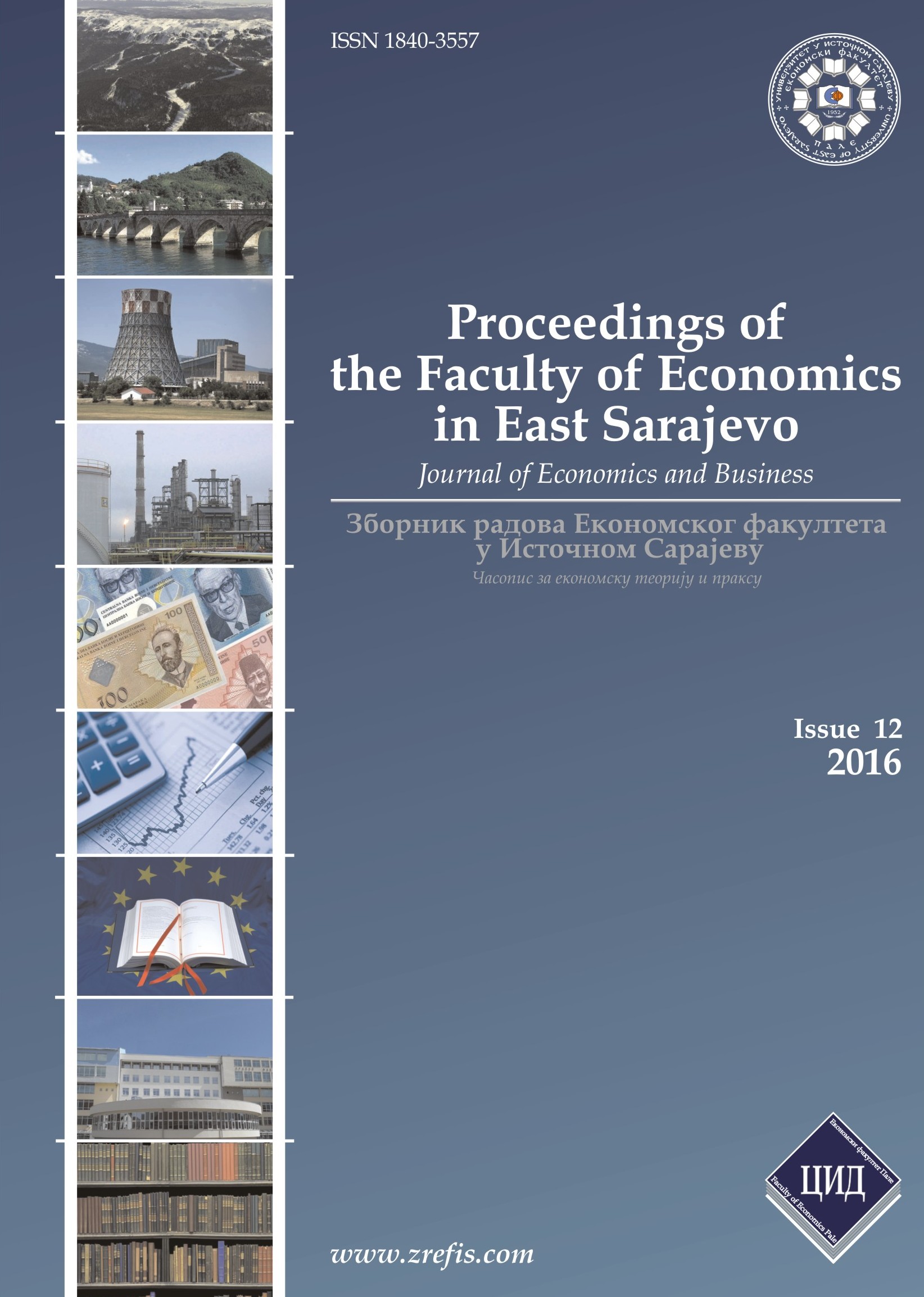
In order to overcome the disadvantages of the existing two types of economic systems - the socialism and capitalism, there was a need to find a system that will use the positive aspects of both systems.Оne country succeeds more than successfully to combine bases of the centrally planned and market system.Socialism in the Chinese style, as it is called by Gregory and Stuart proved to be a successful practical example of the market socialism. After the implementation of China's reforms, they have kept a one-party system and state ownership, but have accepted the market allocation of resources. In the Constitution of the People’s Republic of China, Chinese economy is voluntarily classified as a socialist market economy. That China is more than a successful example of market socialism, is shown by the remarkable growth rates and the unprecedented progress of the country in the last thirty years.Reforms have enabled the opening of China to foreign trade, which before 1978 was almost non-existent.After the establishment of the first diplomatic relations with the EU, in 1985 the Agreement on Trade and Economic Cooperation EEC and China was signed,which officially begins establishing bilateral trade relations. Special importance for the progress of trade relations is China's entry into WTO in 2001, and the signing of the strategic partnership of the EU and China in 2003. The volume of trade between the two economies is growing steadily, and the main characteristics of their trade relations is a continuous deficit which the EU has realized in the exchange with China. Although the European Union is the largest trading partner of China,and China is the second trading partner of the EU,differences and difficulties in the field of trade still exist.
More...
The purpose of this paper is to understand the relationship between increased levels of competition – facilitated by market liberalisation – and innovation performance in the context of the Russian vodka industry. Through this understanding this paper subsequently develops a series of innovation policy considerations for transitional economies. In order to achieve this, this paper reflects on the existing literature surrounding innovation performance and competition; as well as the development of the Russian economy more broadly.This paper finds that a state-controlled industry is capable of fostering innovation. However, once the presence of the state in an industry is reduced, innovation performance is enhanced. A recommendation is made that the state should not exhibit control beyond providing a legislative framework for competitiveness; where possible monopolies should be broken down; and private enterprise should be encouraged.A number of the world's large economies find themselves in a state of transition, as such the development of an innovation policy that will allow transitional economies to realise their innovation potential in a sustainable way is imperative to the success of their ongoing transition. The Russian Federation has endured significant economic transition since the collapse of the Soviet Union, and the Russian vodka industry has been a constant throughout, it is therefore an ideal case in examining the evolution of innovation in a transitional context.
More...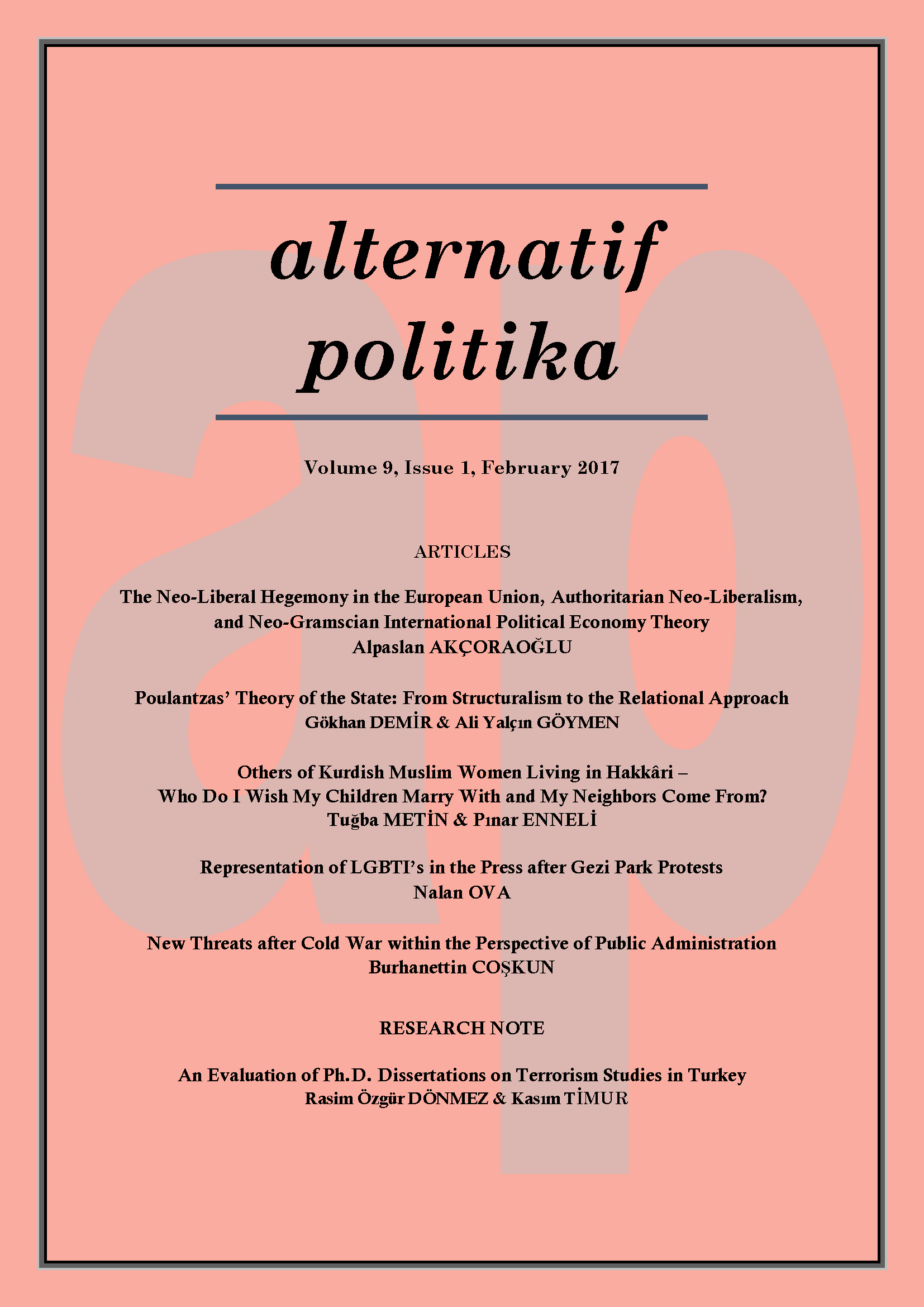
Although neo-liberalism has not been able to offer any lasting solution to the profound economic crisis and long-run stagnation of the European Union (EU), its ideological supremacy (non-hegemonic in Gramscian terms) has still proceeded in the EU. This article reviews the historical evolution of neo-liberal restructuring in the European integration from the perspective of neo-Gramscian International Political Economy (IPE) literature. The majority of the recent critical IPE studies in the political economy of European integration is based on Robert Cox’s “World Order” theory with neo-Gramscian foundations. Neo-Gramscian IPE emphasizes the significance of transnational relations from a historical materialist perspective and perceives that European integration process is the outcome of a struggle between transnational social forces. In addition, this article analyzes the crisis of neo-liberal hegemony in the EU, the changes in the political economy of the EU after the euro crisis, and the model of authoritarian neo-liberalism from a neo-Gramscian perspective.
More...
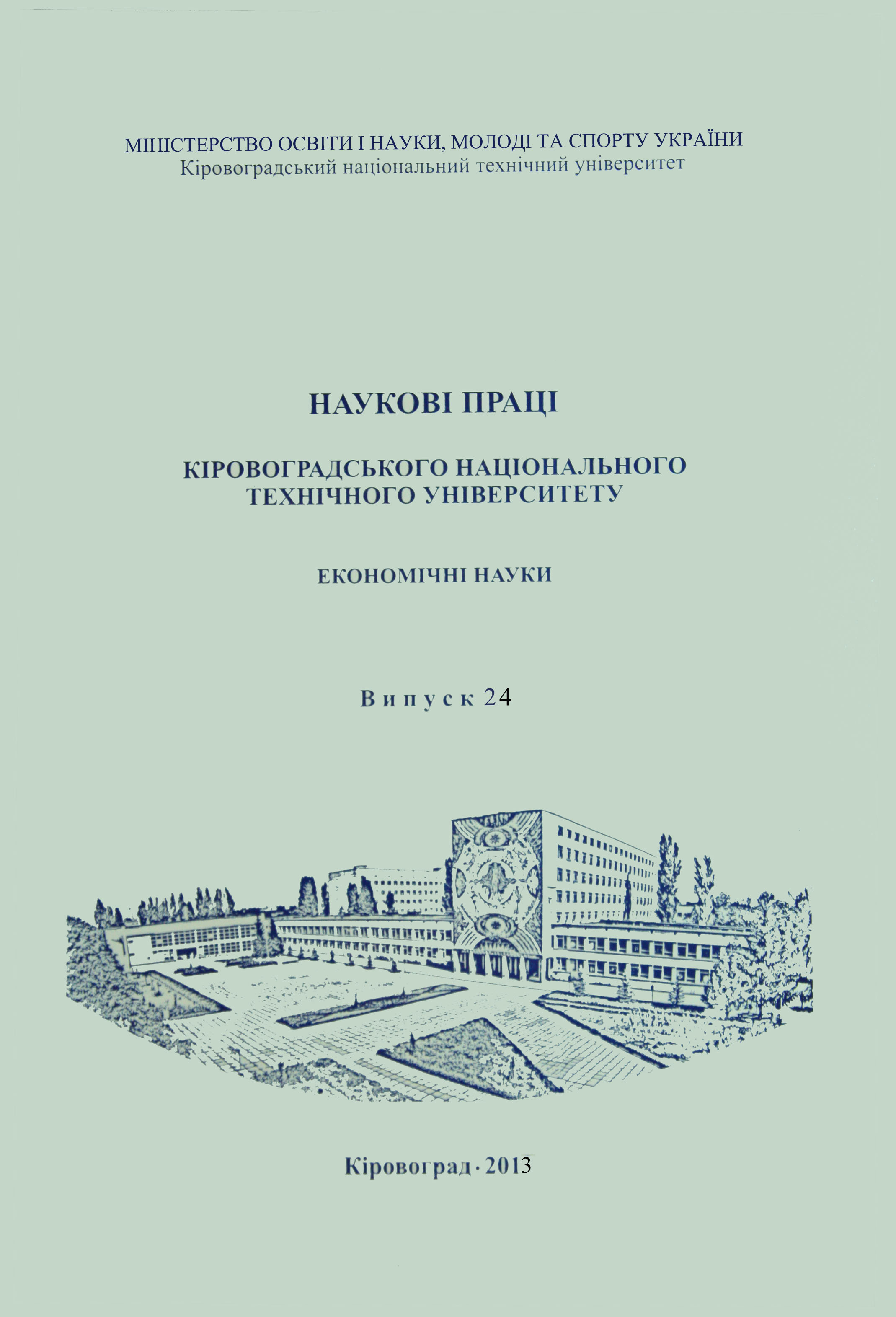
The aim of the article is to examine existing theories and concepts of formation of the labor costs and their relationship with wages , as well as their methodological basis.The basic approaches to the nature of the category “labor costs” that exist in economic theory and practice have been investigated. The ways of combining the approaches of the labor theory of value and utility theory to determine the mechanism of the formation of a specific commodity value “labor services” with a view to the interests and needs of both employees and employers have been analyzed. The components of labor coasts and their relationship with wages have been considered. The basic models of labor costs` valuation taking into account the possibility of its reimbursement on the social and individual basis have been analyzed.The results of investigation show that the wage is a key element of the approximate recovery of commodity “labor services” and, in spite of the importance of other payments, principal, and largely independent form of existing the price of labor costs. The main attention should be given to the system of state social security as are prescribed by law and state regulations which defines certain proportion for sale of labor services, among which is the basic minimum wage.
More...
Author is discussing a problem of social justice by putting an emphasis on the complex relationship between democracy, capitalism and justice. The main idea explored in the article is that within conscious socio-political analysis that puts questions of the way of life and quality of life in its focus and relates these questions to class-based structural questions, the main dilemma is that between democracy or capitalism. Author offers an overview of contemporary debates related to this dilemma.
More...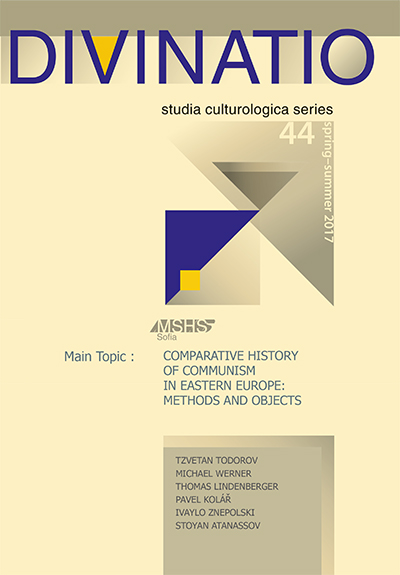
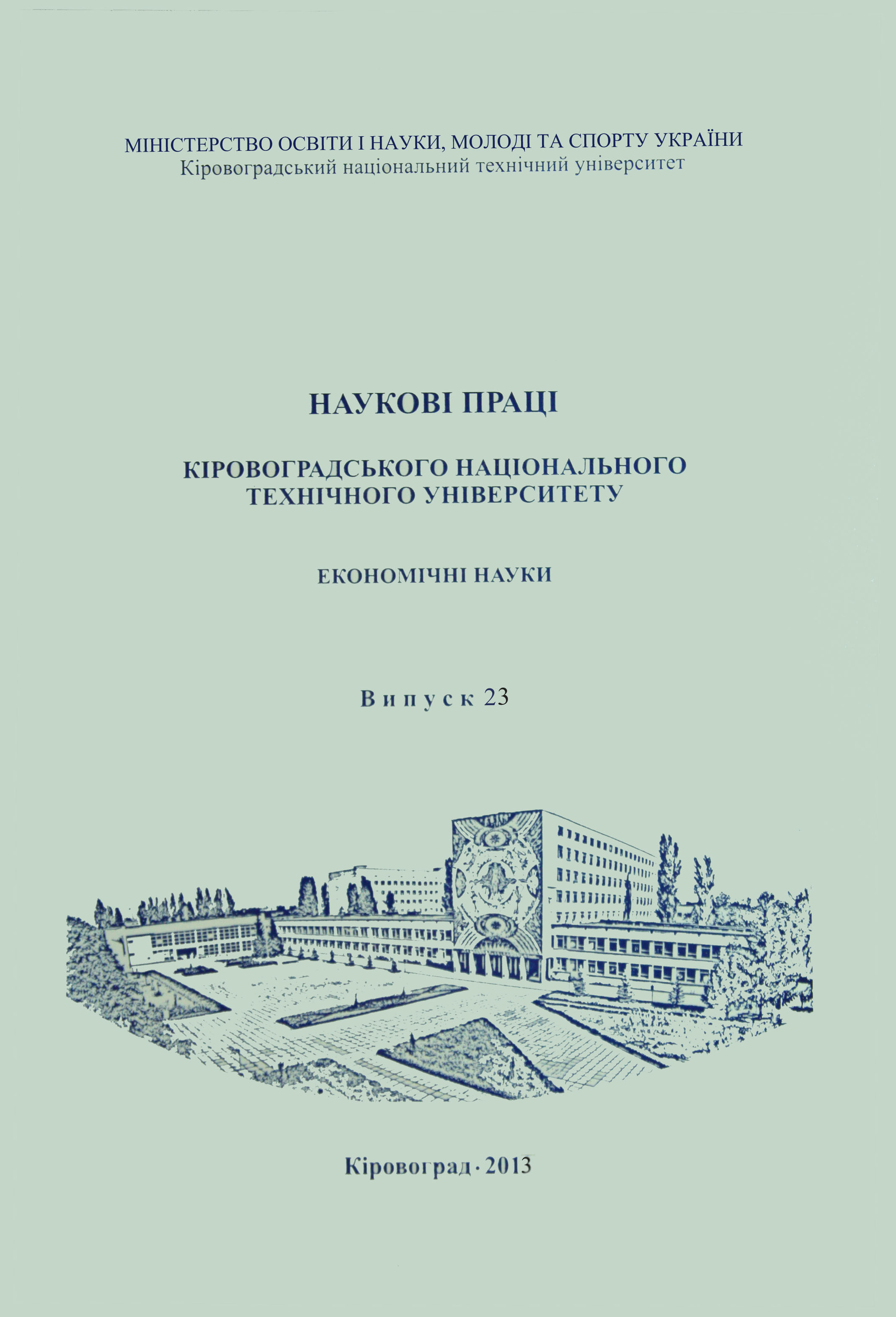
This study aims to investigate the quantitative relationship between the level of production, actual income and consumption in Ukraine. For greater clarity, the individual figures are compared with data of other countries. The research based on a dual approach to the consideration of GDP as the market price of domestically produced goods and services in terms of income and expenses. This approach provides the possibility to produce consistent estimates of consumption of economic resources of the country, to study the structure of consumption in the context of separate institutional units.
More...
This article brings distinct strands of the political economy of communication and economic geography together in order to theorise the role digital technologies play in Marxian crisis theory. Capitalist advances into digital spaces do not make the law of value obsolete, but these spaces do offer new methods for displacing overaccumulated capital, increasing consumption, or accumulating new, cheaper labour. We build on David Harvey’s theory of the spatial fix to describe three digital spatial fixes, fixed capital projects that use the specific properties of digital spaces to increase the rate of prof- it, before themselves becoming obstacles to the addictive cycle of accumulation: the primitive accumulation of time in the social Web, the annihilation of time by space in highfrequency trading, and affect rent in virtual worlds. We conclude by reflecting on how these digital spatial fixes also fix the tempo of accumulation and adjust the time-scale of Marxian crisis theory.
More...
Although the prevailing crisis is directly connected to subprime lending, indirectly institutional and real economic causes lie in its background. In particular, income concentration is one of its most significant reasons. Although there was also significant economic inequality in the United States prior to the Great Depression of 1929, this economic phenomenon as an explanation for the crisis has emerged only in the very recent years. Nevertheless, there has been no agreement in the literature so far about what the real causes of the prevailing turbulent processes and the growing inequality could be. The aim of this paper is to provide insight into these controversies in order to make more understandable the hints and the conflicts in the literature. These controversies are placed in a framework of the creation and the dismantling of the New Deal.
More...
Adam Smith in Beijing is Giovanni Arrighi’s last work in a row, addressed by the author as a synthesis of all his previous researches. Thus, we must also see it as a sort of opus magnum, the source of which consists of two of his major studies: Chaos and Governance in the Modern World System and The Long Twentieth Century. Throughout his life, Arrighi was among those scholars, who sought to answer the question: is there a general tendency of economic and social convergence among the nations of the South and the North in the global capitalism, or what we see should be described rather as a great divergence. Given that the challenge to answer such a question is so great, the reader will never get the proper answer from Arrighi, despite his eff orts to draw a conclusion. Instead, what he does in the reviewed book, is that he provides a detailed insight into the working of the historical phenomenon of hegemony shift in a broader European context, combined with a comparative study of the inter-state system in the medieval Far-East. His argument in this regard is that there are two long-trajectories at the end of the 20th century, namely what Arrighi calls the parallel hegemonic decline of the United States and the emergence of China as the new hegemonic power. However Arrighi’s attempt to introduce China as an alternative source of power, the agent of the new non-capitalist world order, fails to be convincing. He himself discovers the challenge of the apologia that results from the possible misinterpretation of the contemporary shift in the world order, the conclusion of which is that the author needs to rebalance his argument in order to fi nd a more critical approach. In his fi nal comments, Arrighi successfully manages this rebalancing, but as a consequence, he fails to answer his original question. Hence, we recommend Adam Smith in Beijing as a rich book from the fi eld of international comparative social history
More...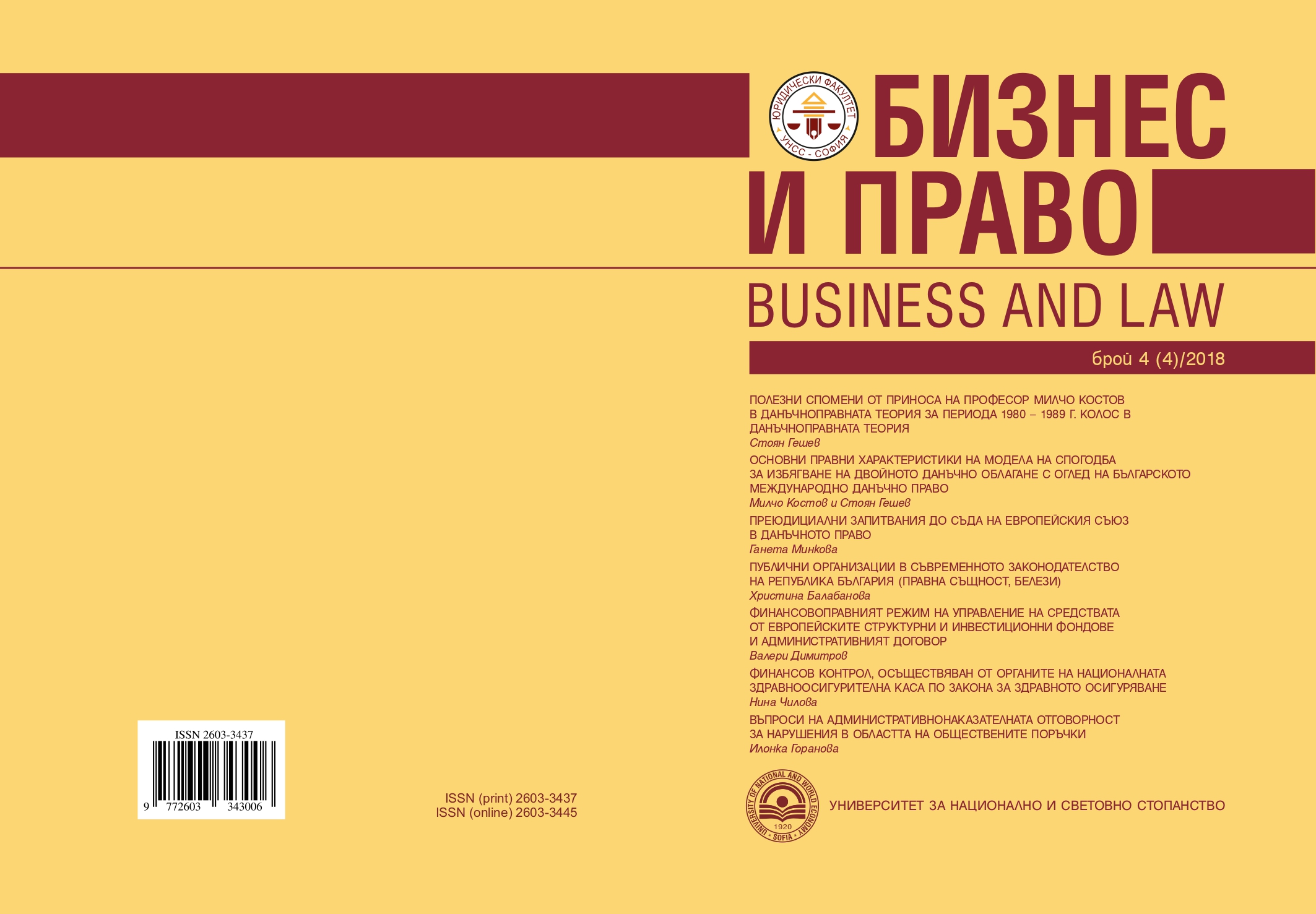
Mr Stojan Geshev, Formal Head of Department at the Ministry of Finance of the Republic of Bulgaria tell the readers about an interesting moment from the work of late prof. Milcho Kostov when the first Bulgarian Model for Double Taxation Treaty was drafted
More...
The late Prof. Milch Kostov and Mr Stojan Geshev discuss some practical and dogmatic issues about the first Model of Double Tax Relief Treaty from 1963. The article is originally published by Pravna Misal review, number 4, 1982, pp 57-71. The core of the discussion is synchronisation of Bulgarian legislation and the Model provided by OECD.
More...
The paper compares for the first time in historiography the Lithuanian manorial-serf economy and Latin American hacienda economic systems of the second half of the 18th century to the second half of the 19th century in the context of the capitalist world system (CWS). The main focus will be on the explication in macro level of similarities and differences of structures and development trends of these systems. The analyzed period corresponds to the stage of both the dominance and intensification of manorial-serf economy in Lithuania and predominance and intensification of hacienda economy in Latin American countries and it was determined by the same factor of the industrial revolution. The study confirms the thesis that these economic systems belonged to typologically closed economic kind (they were focused on the serfdom method of production) in the global division of labor. It shows that both Lithuanian manorial-serf economy and haciendas of Latin America were not typical feudal enterprises, but displayed only peripheral (agrarian) capitalism features.
More...
Global risk factors have great impacts on the economies and financial markets. It is observed that the stock markets of countries are affected by globalization especially in times of global crisis. To this end, CDS, VIX and Credit Ratings have started to be examined recently in order to decrease global risk factors. CDS, VIX, and Credit Ratings were determined as global risk indicators and these variables used as independent variables to detect the effect on BRICS-T (Brazil, Russia, India, China, South Africa and Turkey) stock market returns. Daily data set of these variables from 2008 to 2020 were gathered for each country. After preliminary analysis, ARDL model was determined as the best-fitted model for each data set. According to ARDL Bound test approach, except for China, it was detected long-term relationship between variables for the all-remaining (Brazil, Russia, India, South Africa, and Turkey) countries. It means that global risk indicators affect the returns of stock markets in emerging markets.
More...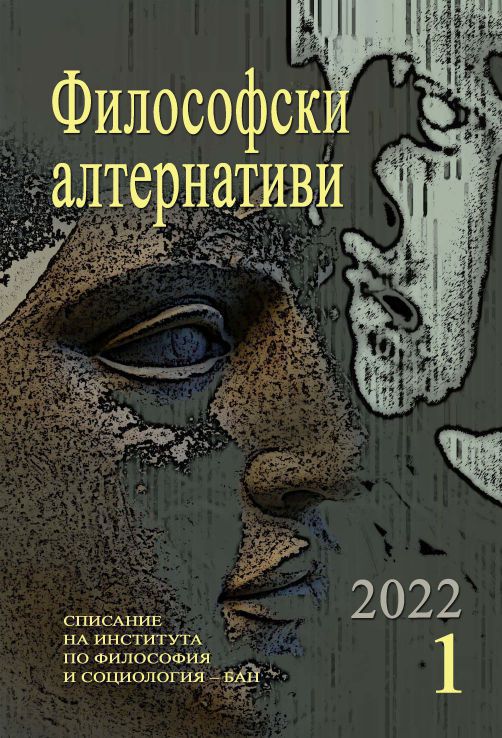
This article examines a number of key points in the teachings of the famous representative of the Austrian School of Economics Ludwig von Mises, whose work can be described as an attempt to rehabilitate liberalism, positioned on such basic concepts as “private property”, “individual freedom”, “market economy”, “free enterprise”, etc. The article aims not only to set out the basics of Mises’ socio-economic theory, but also to present its philosophical-anthropological basis in the face of praxeology, through the prism of which the Austrian scientist studies liberalism, socialism, and state interventionism (Keynesian capitalism).
More...